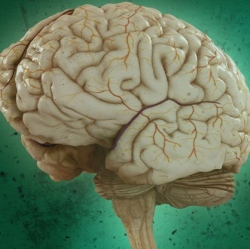
Researchers have succeeded in transforming human support brain cells, called astroglial cells, into functioning neurons for brain repair. The new technology opens the door to future development of drugs that patients could take as pills to regenerate neurons after traumatic injuries, stroke, or Alzheimer’s.
Previous research, such as conventional stem-cell therapy, has required brain surgery, so it is much more invasive and prone to immune-system rejection and other problems.
“We have discovered a cocktail of small molecules that can reprogram human brain astroglial cells into neuron-like cells after eight to ten days of chemical treatment,” Chen said. The reprogrammed nerves survived for more than five months in cell culture, where they formed functional synaptic networks.
The scientists also injected the reprogrammed human neurons into the brains of living mice, where they integrated into the neural circuits and survived there for at least one month.
“The small molecules are not only easy to synthesize and package into drug pills, but also much more convenient for use by patients than other methods now being developed,” Chen said.
Astroglial cells surround neurons and provide them with support, protection, oxygen, and nutrients. But when brain tissues are damaged by strokes or trauma, the astroglial cells react by multiplying, sometimes so much that they clog up the nervous system by forming a scar.
These astroglial scars,a difficult research challenge for many decades, can cause health problems by preventing nerve regeneration and by blocking nerve-to-nerve communications between different regions of the brain.
Chen’s group previously invented a method to convert astroglial cells into neurons using viral particles. But Chen also wanted to investigate whether small chemical compounds, which could be packaged into swallowable pills, could also do the job.
